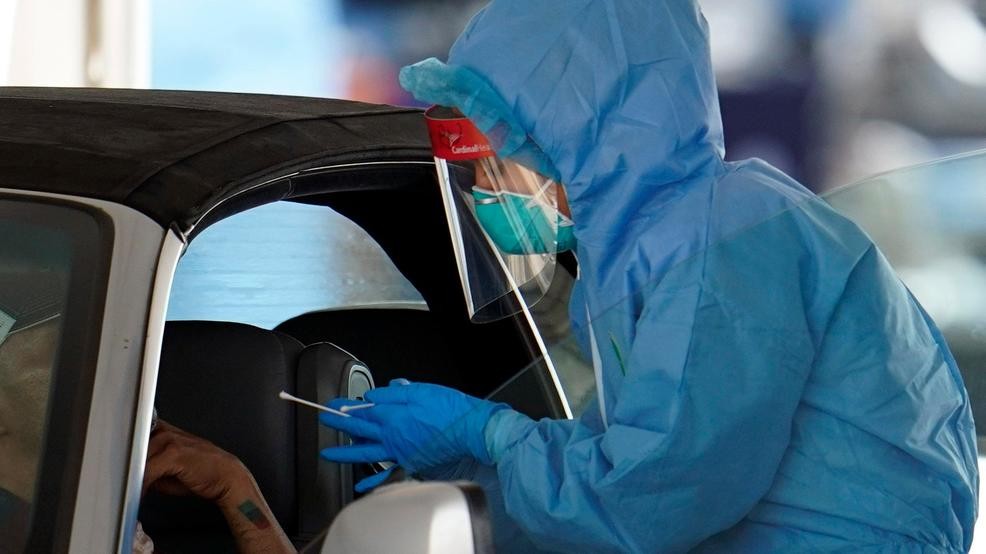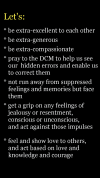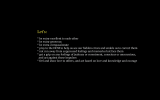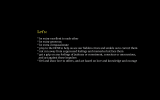The Coronavirus Could Reshape Global Order
China Is Maneuvering for International Leadership as the United States Falters
By
Kurt M. Campbell and
Rush Doshi March 18, 2020
With hundreds of millions of people now isolating themselves around the world, the novel coronavirus pandemic has become a truly global event. And while its geopolitical implications should be considered secondary to matters of health and safety, those implications may, in the long term, prove just as consequential—especially when it comes to the United States’ global position. Global orders have a tendency to change gradually at first and then all at once. In 1956, a botched intervention in the Suez laid bare the decay in British power and marked the end of the United Kingdom’s reign as a global power. Today, U.S. policymakers should recognize that if the United States does not rise to meet the moment, the coronavirus pandemic could mark another “Suez moment.”
It is now clear to all but the most blinkered partisans that Washington has botched its initial response. Missteps by key institutions, from the White House and the Department of Homeland Security to the Centers for Disease Control and Prevention (CDC), have undermined confidence in the capacity and competence of U.S. governance. Public statements by President Donald Trump, whether Oval Office addresses or early-morning tweets, have largely served to sow confusion and spread uncertainty. Both public and private sectors have proved ill-prepared to produce and distribute the tools necessary for testing and response. And internationally, the pandemic has amplified Trump’s instincts to go it alone and exposed just how unprepared Washington is to lead a global response.
The status of the United States as a global leader over the past seven decades has been built not just on wealth and power but also, and just as important, on the legitimacy that flows from the United States’ domestic governance, provision of global public goods, and ability and willingness to muster and coordinate a global response to crises. The coronavirus pandemic is testing all three elements of U.S. leadership. So far, Washington is failing the test.
As Washington falters, Beijing is moving quickly and adeptly to take advantage of the opening created by U.S. mistakes, filling the vacuum to position itself as the global leader in pandemic response. It is working to tout its own system, provide material assistance to other countries, and even organize other governments. The sheer chutzpah of China’s move is hard to overstate. After all, it was Beijing’s own missteps—especially its efforts at first to cover up the severity and spread of the outbreak—that helped create the very crisis now afflicting much of the world. Yet Beijing understands that if it is seen as leading, and Washington is seen as unable or unwilling to do so, this perception could fundamentally alter the United States’ position in global politics and the contest for leadership in the twenty-first century.
In the immediate aftermath of the outbreak of the novel coronavirus, which causes the disease now referred to as COVID-19, the missteps of Chinese leaders cast a pall on their country’s global standing. The virus was first detected in November 2019 in the city of Wuhan, but officials didn’t disclose it for months and even punished the doctors who first reported it, squandering precious time and
delaying by at least five weeks measures that would educate the public, halt travel, and enable widespread testing. Even as the full scale of the crisis emerged, Beijing tightly controlled information, shunned assistance from the CDC, limited World Health Organization travel to Wuhan, likely undercounted infections and deaths, and repeatedly altered the criteria for registering new COVID-19 cases—perhaps in a deliberate effort to manipulate the official number of cases.
As the crisis worsened through January and February, some observers speculated that the coronavirus might even undermine the leadership of the Chinese Communist Party. It was called China’s “Chernobyl”; Dr. Li Wenliang—the young whistleblower silenced by the government who later succumbed to complications from the COVID-19—was likened to the Tiananmen Square “tank man.”
Yet by early March, China was claiming victory. Mass quarantines, a halt to travel, and a complete shutdown of most daily life nationwide were credited with having stemmed the tide; official statistics, such as they are, reported that daily new cases had fallen into the
single digits in mid-March from the hundreds in early February. In a surprise to most observers, Chinese leader Xi Jinping—who had been uncharacteristically quiet in the first weeks—began to put himself squarely at the center of the response. This month, he personally visited Wuhan.
Even though life in China has yet to return to normal (and despite continuing questions over the accuracy of China’s statistics), Beijing is working to turn these early signs of success into a larger narrative to broadcast to the rest of the world—one that makes China the essential player in a coming global recovery while airbrushing away its earlier mismanagement of the crisis.
A critical part of this narrative is Beijing’s supposed success in battling the virus. A steady stream of propaganda articles, tweets, and public messaging, in a wide variety of languages, touts China’s achievements and highlights the effectiveness of its model of domestic governance. “China’s signature strength, efficiency and speed in this fight has been widely acclaimed,”
declared Foreign Ministry spokesman Zhao Lijian. China, he added, set “a new standard for the global efforts against the epidemic.” Central authorities have instituted tight informational control and discipline at state organs to snuff out contradictory narratives.
These messages are helped by the implicit contrast with efforts to battle the virus in the West, particularly in the United States—Washington’s failure to produce adequate numbers of testing kits, which means the United States has tested relatively few people per capita, or the Trump administration’s ongoing disassembly of the U.S. government’s
pandemic-response infrastructure. Beijing has seized the narrative opportunity provided by American disarray, its state media and diplomats regularly reminding a global audience of the superiority of Chinese efforts and
criticizing the “irresponsibility and incompetence” of the “so-called political elite in Washington,” as the state-run Xinhua news agency put it in an editorial.
Chinese officials and state media have even insisted that the coronavirus did not in fact emerge from China—despite overwhelming evidence to the contrary—in order to reduce China’s blame for the global pandemic. This effort has elements of a full-blown Russian-style disinformation campaign, with China’s Foreign Ministry spokesman and over a dozen diplomats sharing poorly sourced articles accusing the
U.S. military of spreading the coronavirus in Wuhan. These actions, combined with China’s unprecedented mass expulsion of journalists from three leading American papers, damage China’s pretensions to leadership.
Xi understands that providing global goods can burnish a rising power’s leadership credentials. He has spent the last several years pushing China’s foreign policy apparatus to think harder about
leading reforms to “global governance,” and the coronavirus offers an opportunity to put that theory into action. Consider China’s increasingly well-publicized displays of material assistance—including masks, respirators, ventilators, and medicine. At the outset of the crisis, China purchased and produced (and received as aid) vast quantities of these goods. Now it is in a position to hand them out to others.
When no European state answered Italy’s urgent appeal for medical equipment and protective gear, China publicly committed to
sending 1,000 ventilators, two million masks, 100,000 respirators, 20,000 protective suits, and 50,000 test kits. China has also dispatched medical teams and 250,000 masks to Iran and sent supplies to Serbia, whose president dismissed European solidarity as “a fairy tale” and proclaimed that “the only country that can help us is China.” Alibaba co-founder Jack Ma has promised to send large quantities of testing kits and masks to the United States, as well as 20,000 test kits and 100,000 masks to
each of Africa’s 54 countries.
Beijing’s edge in material assistance is enhanced by the simple fact that much of what the world depends on to fight the coronavirus is made in China. It was already the major producer of surgical masks; now, through wartime-like industrial mobilization, it has boosted production of masks more than
tenfold, giving it the capacity to provide them to the world. China also produces
roughly half of the N95 respirators critical for protecting health workers (it has
forced foreign factories in China to make them and then sell them directly to the government), giving it another foreign policy tool in the form of medical equipment. Meanwhile, antibiotics are critical for addressing emerging
secondary infections from COVID-19, and China produces the vast majority of active pharmaceutical ingredients necessary to make them.
The United States, by contrast, lacks the supply and capacity to meet many of its own demands, let alone to provide aid in crisis zones elsewhere. The picture is grim. The U.S. Strategic National Stockpile, the nation’s reserve of critical medical supplies, is believed to
have only one percent of the masks and respirators and perhaps ten percent of the
ventilators needed to deal with the pandemic. The rest will have to be made up with imports from China or rapidly increased domestic manufacturing. Similarly, China’s
share of the U.S. antibiotics market is more than 95 percent, and most of the ingredients cannot be manufactured domestically. Although Washington offered assistance to
China and others at the outset of the crisis, it is less able to do so now, as its own needs grow; Beijing, in contrast, is offering aid precisely when the global need is greatest.
Crisis response, however, is not only about material goods. During the 2014–15 Ebola crisis, the United States assembled and led a coalition of dozens of countries to counter the spread of the disease. The Trump administration has so far shunned a similar leadership effort to respond to the coronavirus. Even coordination with allies has been lacking. Washington appears, for example, not to have given its European allies
any prior notice before instituting a ban on travel from Europe.
China, by contrast, has undertaken a robust diplomatic campaign to convene dozens of countries and hundreds of officials, generally by videoconference, to share information about the pandemic and lessons from China’s own experience battling the disease. Like much of China’s diplomacy, these convening efforts are largely conducted at the regional level or through regional bodies. They include calls with
central and eastern European states through the “17 + 1” mechanism, with the Shanghai Cooperation Organization’s secretariat, with
ten Pacific Island states, and with other groupings across Africa, Europe, and Asia. And China is working hard to publicize such initiatives. Virtually
every story on the front page of its foreign-facing propaganda organs advertises China’s efforts to help different countries with goods and information while underscoring the superiority of Beijing’s approach.
China’s chief asset in its pursuit of global leadership—in the face of the coronavirus and more broadly—is the perceived inadequacy and inward focus of U.S. policy. The ultimate success of China’s pursuit, therefore, will depend as much on what happens in Washington as on what happens in Beijing. In the current crisis, Washington can still turn the tide if it proves capable of doing what is expected of a leader: managing the problem at home, supplying global public goods, and coordinating a global response.
The first of those tasks—stopping the spread of the disease and protecting vulnerable populations in the United States—is most urgent and largely a question of domestic governance rather than geopolitics. But how Washington goes about it will have geopolitical implications, and not just insofar as it does or does not reestablish confidence in the U.S. response. For example, if the federal government immediately supports and subsidizes expansion of domestic production of masks, respirators, and ventilators—a response befitting the wartime urgency of this pandemic—it would both save American lives and help others around the world by reducing the scarcity of global supplies.
While the United States isn’t currently able to meet the urgent material demands of the pandemic, its continuing global edge in the life sciences and biotechnology can be instrumental in finding a real solution to the crisis: a vaccine. The U.S. government can help by providing incentives to U.S. labs and companies to undertake a medical “Manhattan Project” to devise, rapidly test in clinical trials, and mass-produce a vaccine. Because these efforts are costly and require dauntingly high
upfront investments, generous government financing and bonuses for successful vaccine production could make a difference. And it is worth noting that despite Washington’s mismanagement, state and local governments, nonprofit and religious organizations, universities, and companies are not waiting for the federal government to get its act together before taking action. U.S.-funded
companies and researchers are already making progress toward a vaccine—though even in the best-case scenario, it will be some time before one is ready for widespread use.
Yet even as it focuses on efforts at home, Washington cannot simply ignore the need for a coordinated global response. Only strong leadership can solve global coordination problems related to travel restrictions, information sharing, and the flow of critical goods. The United States has successfully provided such leadership for decades, and it must do so again.
That leadership will also require effectively cooperating with China, rather than getting consumed by a war of narratives about who responded better. Little is gained by repeatedly emphasizing the origins of the coronavirus—which are already widely known despite China’s propaganda—or engaging in petty tit-for-tat rhetorical exchanges with Beijing. As Chinese officials accuse the U.S. military of spreading the virus and lambaste U.S. efforts, Washington should respond when necessary but generally resist the temptation to put China at the center of its coronavirus messaging. Most countries coping with the challenge would rather see a public message that stresses the seriousness of a shared global challenge and possible paths forward (including successful examples of coronavirus response in democratic societies such as Taiwan and South Korea). And there is much Washington and Beijing could do together for the world’s benefit: coordinating vaccine research and clinical trials as well as fiscal stimulus; sharing information; cooperating on industrial mobilization (on machines for producing critical respirator
components or ventilator parts, for instance); and offering joint assistance to others.
Ultimately, the coronavirus might even serve as a wake-up call, spurring progress on other global challenges requiring U.S.-Chinese cooperation, such as climate change. Such a step should not be seen—and would not be seen by the rest of the world—as a concession to Chinese power. Rather, it would go some way toward restoring faith in the future of U.S. leadership. In the current crisis, as in geopolitics today more generally, the United States can do well by doing good.
 (tongue in cheek).
(tongue in cheek).




